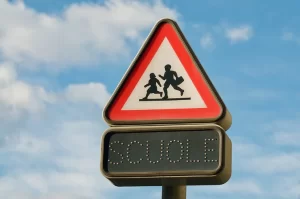What is Summer Regression?
Simply put, summer regression is the loss of academic knowledge gained throughout the school year. This means that a student may be starting the next school year at a level that is lower than where they ended the previous year. We have seen students in the past who have taken the summer off from instruction, resulting in a regression of approximately 9 weeks of instruction, or one school quarter. This can be especially detrimental to students who were already struggling to get by. As they continue to move forward in school, the gaps in their education will continue to grow larger with the help of summer regression.
What causes it?
If you don’t use it, you lose it.
Summer regression occurs when students are out of their school environment and are not practicing the foundational skills they learned during the school year. When students have extended periods of time that they are not practicing, their skills lessen, they forget certain facts or skills, and their confidence in their abilities decreases as well.
How to minimize it
In order to minimize summer regression, it’s important to create opportunities for your child to practice the skills they acquired over the school year. This can be independent reading time, read alouds, family book discussions, educational outings or enrolling in an academic summer program.
Small group classes or private instruction can not only prevent summer regression, but can also provide academic acceleration, giving your child a head start on the next school year. Private instruction is customized to your child’s needs, making it an efficient use of time for students who need to make big gains in shorter amounts of time. Small group classes provide your child with the opportunity to review concepts alongside their peers, keeping the content fresh in their mind over summer vacation.
Daily Activities
Make it a habit to practice math facts and reading each day.
Math facts need to be automatic in order to free up brain space to work through more challenging content. Quick, daily practice of all previously mastered facts can take as little as 5 minutes a day. Quizzing your kids in the car on the way to camp or other activities is a great, easy way to get in practice.
Each family is different, so it might take some time to figure out what type of schedule works best for yours. Perhaps math practice and reading in the morning before getting out the door for an adventure. You could also break it up and do math in the morning and reading before bed.
Make sure the book they are reading is at their reading level. You can have them read parts of it aloud to you while you work to make sure they are reading well and to check for understanding. If they are struggling to understand the book, maybe it would be better as a read aloud, or maybe they need a lower level book.
Try to stay away from graphic novels. Though they look like books on the outside, the excessive pictures weakens the students ability to visualize and can lower their comprehension. We want them to get exposed to a variety of content areas, so even giving them access to non-fiction or encyclopedias would be a great use of time.
Don’t make it a stressful event– ask questions about the book that they are reading or read it along with them. Use incentives as needed — extra time at the park, getting a popsicle treat, a fun adventure they can plan, etc.












